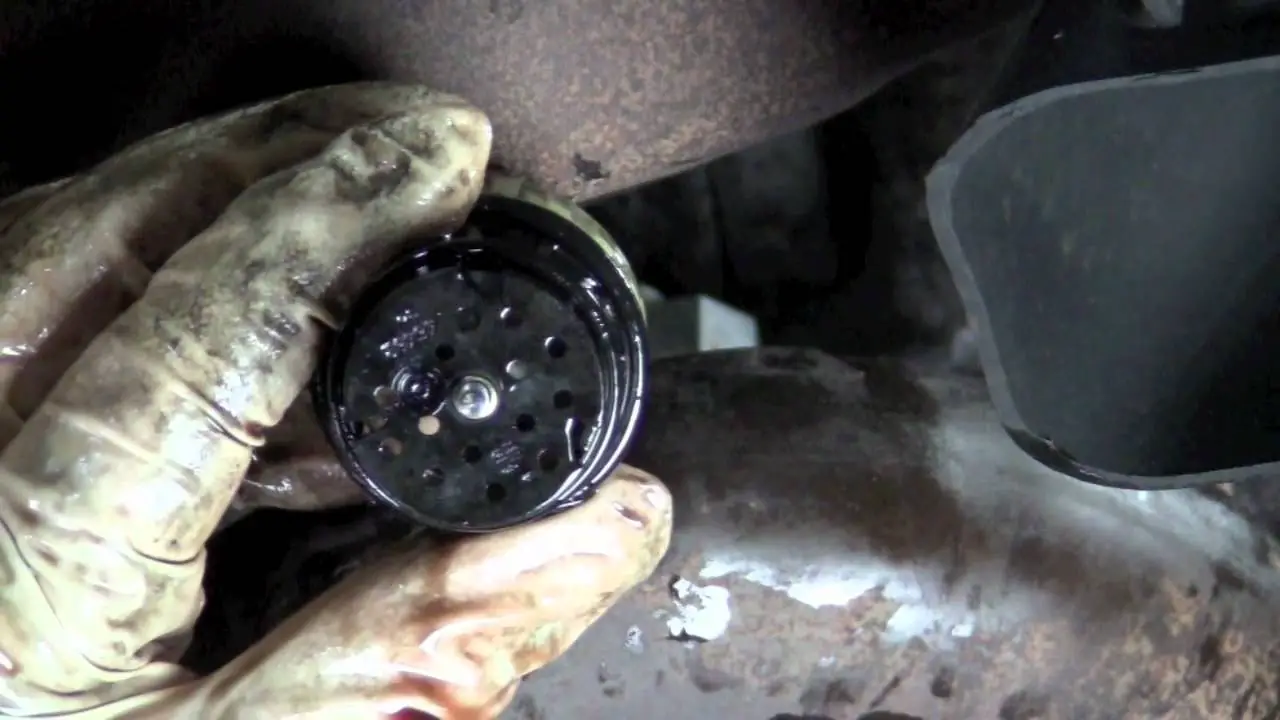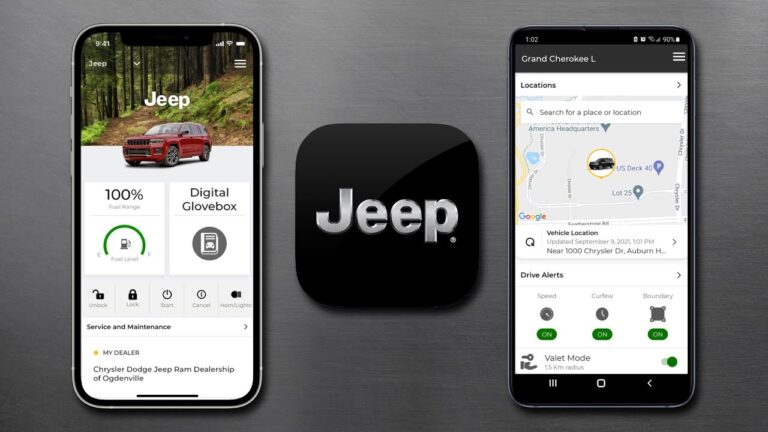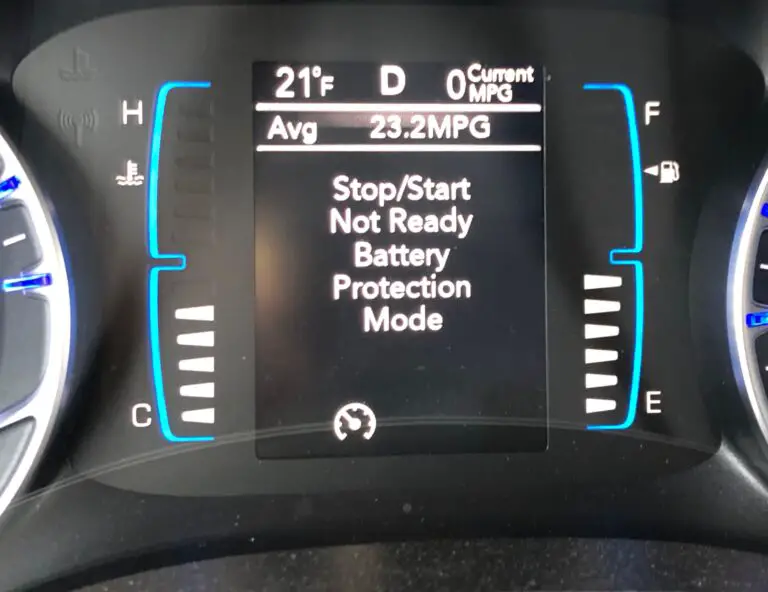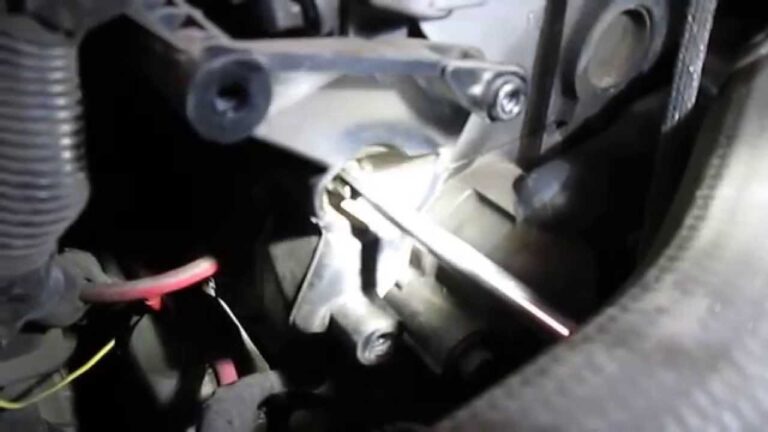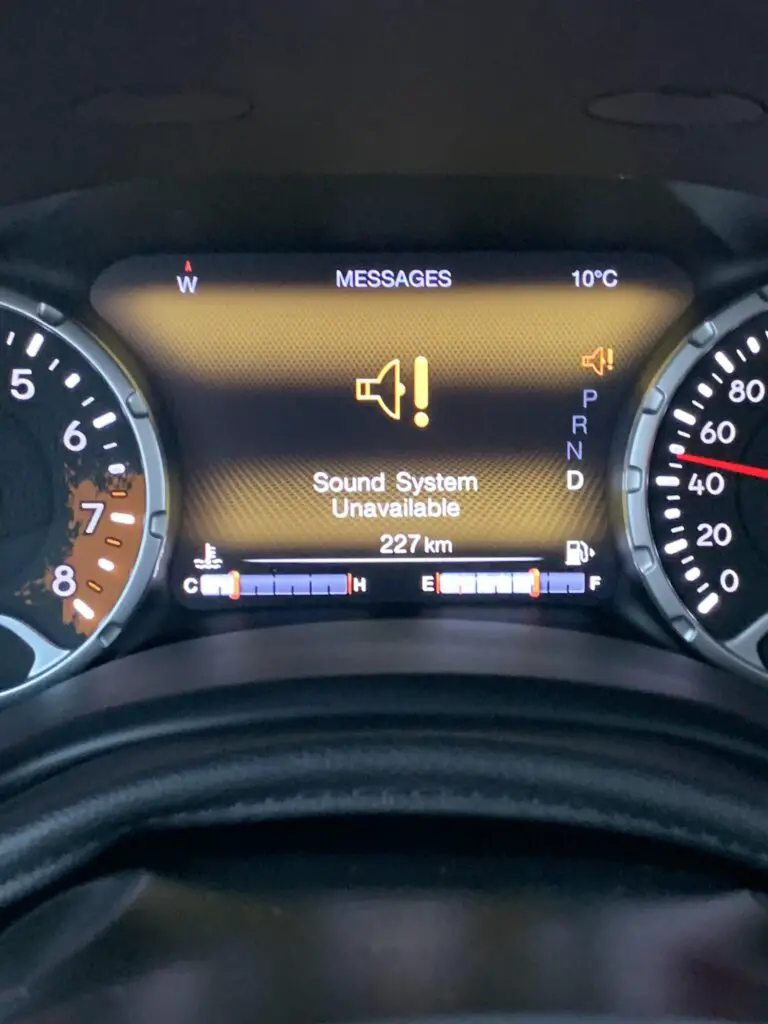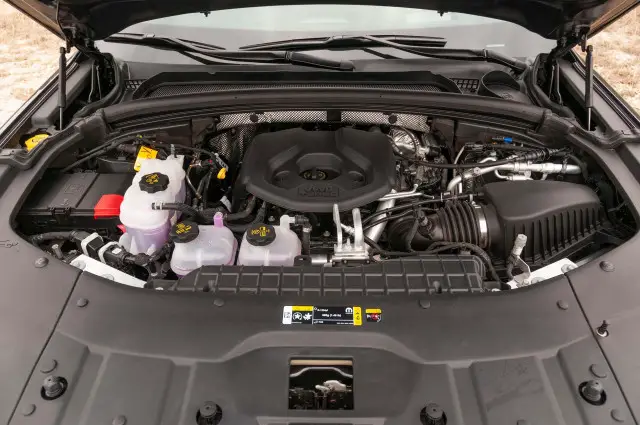Jeep Grand Cherokee Transmission Problems 2025
The Jeep Grand Cherokee may experience transmission problems commonly. However, there are several issues that can occur, including failure to shift, slipping gears, and erratic shifting.
These problems can lead to a decrease in performance and potential safety hazards on the road.
If you own a Jeep Grand Cherokee and are experiencing transmission issues, it is important to have it inspected and repaired by a qualified technician.
Ignoring these problems can lead to more costly repairs down the line. Stay informed about common transmission issues with the Jeep Grand Cherokee to ensure your vehicle is running smoothly and safely.
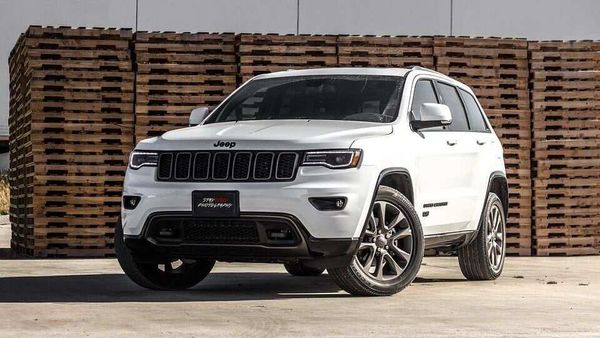
Credit: auto.hindustantimes.com
Common Signs Of Jeep Grand Cherokee Transmission Problems
Knowing the common signs of transmission problems in your Jeep Grand Cherokee can help you address issues promptly and avoid costly repairs.
While the Grand Cherokee is known for its renowned performance and off-road capabilities, transmission problems can still arise. In this section, we will explore some common signs to look out for.
Jerking or slipping during gear shifts
One of the most noticeable signs of transmission problems in your Jeep Grand Cherokee is jerking or slipping during gear shifts.
You may experience a sudden jolt or hesitation when shifting gears, especially when accelerating or decelerating.
This can occur due to worn-out clutch plates, low transmission fluid levels, or a malfunctioning torque converter.
If you encounter such jerking or slipping sensations, it’s crucial to have your transmission system inspected by a qualified mechanic or dealership.
Ignoring these symptoms can lead to further damage and potential transmission failure, resulting in expensive repairs or even a complete transmission replacement.
Delayed engagement or difficulty shifting
Another common sign of transmission problems in the Jeep Grand Cherokee is delayed engagement or difficulty shifting.
You may notice a delay in gear engagement when shifting from park to drive or from one gear to another.
Additionally, you might experience resistance or grinding noises while shifting gears.
These issues can arise from a range of causes, such as worn-out clutch plates, damaged shift solenoids, or a malfunctioning transmission valve body.
If you encounter delayed engagement or difficulty shifting, it’s essential to address the issue promptly to prevent further damage to your transmission system.
Fluid leaks or burning smells
Fluid leaks or burning smells are strong indications of transmission problems in your Jeep Grand Cherokee.
If you notice reddish or brownish fluid pooling underneath your vehicle or dripping onto the ground, it could be a sign of a leaking transmission.
Leakage may occur due to damaged seals, gaskets, or faulty transmission lines.
In addition to fluid leaks, a burning odor, particularly one resembling burnt toast, can signify overheating or insufficient fluid levels in your transmission.
Overheating can lead to degraded transmission fluid, which in turn affects the overall performance and longevity of your transmission system.
If you observe fluid leaks or burning smells, it is crucial to have your vehicle inspected immediately by a professional technician.
Addressing these issues promptly can help prevent major transmission damage and ensure safe operation of your Jeep Grand Cherokee.
Understanding The Causes Of Jeep Grand Cherokee Transmission Problems
When it comes to owning a Jeep Grand Cherokee, one of the most common issues that owners eventually encounter is transmission problems.
These problems can be frustrating and costly to fix, but understanding the underlying causes can help you take preventive measures and address them promptly.
In this section, we will delve into the three primary causes of transmission problems: overheating and fluid degradation, faulty solenoids or sensors, and mechanical wear and tear.
Overheating and fluid degradation
Overheating and fluid degradation are significant factors that contribute to transmission problems in the Jeep Grand Cherokee.
The transmission fluid in your vehicle plays a crucial role in lubricating the transmission components and maintaining the correct operating temperature.
However, when the transmission fluid breaks down or becomes contaminated, it can no longer effectively perform its job, leading to overheating and potential damage to the transmission system.
There are several reasons why your transmission fluid may degrade or overheat. One common cause is the accumulation of dirt, debris, and metal shavings in the fluid, which can happen over time due to normal wear and tear.
Another factor is towing or hauling heavy loads, which puts additional strain on the transmission and causes the fluid to heat up.
Additionally, driving in extreme weather conditions, such as harsh winter cold or scorching summer heat, can also impact the fluid’s performance.
Faulty solenoids or sensors
Solenoids and sensors play a vital role in the proper functioning of the Jeep Grand Cherokee’s transmission system.
These electronic components are responsible for controlling the flow of transmission fluid, shifting gears, and monitoring various parameters that affect the transmission’s performance.
However, when these solenoids or sensors become faulty or malfunction, it can lead to erratic shifting, slipping gears, or even complete transmission failure.
There are several reasons why solenoids or sensors may fail. One common cause is electrical issues, such as corrosion or damaged wiring, which can disrupt the communication between the transmission control module and the solenoids/sensors.
Another factor is the accumulation of debris or dirt, which can clog the solenoids or sensors and hinder their proper functioning.
Additionally, excessive heat or fluid contamination can also cause these components to malfunction, exacerbating transmission problems.
Mechanical wear and tear
As with any mechanical component, wear and tear are inevitable in a Jeep Grand Cherokee’s transmission system.
Over time, the moving parts in the transmission, such as gears, bearings, and clutches, experience friction and stress, leading to their eventual deterioration.
This mechanical wear and tear can manifest in various transmission problems, such as slipping gears, rough shifting, or unusual noises.
Several factors contribute to mechanical wear and tear. One primary factor is inadequate maintenance, such as neglecting regular fluid changes or failing to replace worn-out parts.
Another factor is aggressive driving habits, such as constant hard acceleration or abrupt braking, which puts additional strain on the transmission components.
Additionally, manufacturer defects or poor-quality parts can also accelerate the wear and tear process, making transmission problems more likely to occur.
The Impact Of Untreated Jeep Grand Cherokee Transmission Problems
Jeep Grand Cherokee is a popular SUV known for its rugged performance and off-road capabilities. However, like any mechanical system, it is not immune to problems.
One of the key issues that Jeep Grand Cherokee owners may encounter is transmission problems.
Ignoring these problems can have serious consequences, affecting not only the transmission itself but also other components, fuel efficiency, performance, and most importantly, safety on the road.
Potential damage to other components
Untreated transmission problems in a Jeep Grand Cherokee can lead to potential damage to other components as well.
The transmission is an integral part of the vehicle’s powertrain system, working in harmony with the engine to deliver power and torque to the wheels.
When the transmission is compromised, it can put excessive strain on other components, such as the driveshaft, differential, and axles.
This added strain can lead to accelerated wear and tear and even failure of these vital components.
Reduced fuel efficiency and performance
Untreated transmission problems can also have a significant impact on fuel efficiency and overall performance.
The transmission is responsible for transferring power from the engine to the wheels, ensuring smooth acceleration and efficient gear shifting.
When the transmission is faulty, it can result in power loss, poor fuel economy, and sluggish performance.
Additionally, as the transmission fails to engage properly, it may cause the engine to work harder, consuming more fuel than necessary.
This not only affects the driver’s wallet but also harms the environment.
Safety risks on the road
Ignored transmission problems pose safety risks on the road, endangering the driver, passengers, and others on the road.
The transmission is responsible for providing the necessary power and control for the safe and smooth operation of the vehicle.
Malfunctioning or failing transmission can cause unexpected shifting, delayed acceleration, or complete loss of power, potentially leading to accidents and injuries.
Additionally, an unreliable transmission may result in difficulty in maintaining speed, causing unsafe driving conditions, especially during overtaking or merging.
In conclusion, untreated Jeep Grand Cherokee transmission problems can have far-reaching consequences that go beyond just the transmission itself.
Ignoring these issues can lead to potential damage to other components, reduced fuel efficiency and performance, and most importantly, safety risks on the road.
It is crucial for Jeep Grand Cherokee owners to address any transmission problems promptly to ensure the longevity of the vehicle and the safety of all road users.
Step 1: Performing A Visual Inspection
A thorough visual inspection of your Jeep Grand Cherokee’s transmission can help identify common problems and potential issues before they become costly repairs.
In this step, we will guide you through the process of examining your transmission for fluid leaks or discoloration and checking external components for damage or wear. Let’s get started!
Checking for fluid leaks or discoloration
Fluid leaks or abnormal discoloration can indicate serious problems with your Jeep Grand Cherokee’s transmission.
To check for leaks, follow these steps:
- Park your vehicle on a level surface and engage the parking brake.
- Locate the transmission fluid dipstick. It is usually located towards the back of the engine compartment.
- Remove the dipstick and wipe it clean with a lint-free cloth or paper towel.
- Reinsert the dipstick fully and then remove it again to check the fluid level and condition.
If you notice any fluid leaks or the transmission fluid appears dark, cloudy, or has a burnt smell, it is recommended to have your vehicle inspected by a qualified mechanic.
Addressing fluid leaks and maintaining clean transmission fluid can help prevent further damage and extend the lifespan of your transmission.
Examining external components for damage or wear
During the visual inspection, it is important to examine the external components of your Grand Cherokee’s transmission for any signs of damage or wear.
These components include the transmission cooler lines, linkage, and seals. Here are the steps to follow:
- Visually inspect all the transmission cooler lines for any signs of cracks, leaks, or loose connections.
- Check the linkage for any excessive play or damage. Make sure the linkage is properly connected and functioning smoothly.
- Inspect the seals around the transmission for any signs of leakage. Look for fluid seeping or dripping from the seals.
If you notice any damage, wear, or signs of leakage, it is advisable to have these components repaired or replaced by a qualified technician.
Neglecting such issues can lead to transmission malfunctions and further complications down the road.
By performing a visual inspection and addressing any problems promptly, you can potentially save yourself from expensive transmission repairs and ensure that your Jeep Grand Cherokee continues to run smoothly on and off the road.
Step 2: Using Diagnostic Tools And Scanning For Error Codes
When it comes to troubleshooting transmission problems in your Jeep Grand Cherokee, one of the essential steps is to connect a diagnostic scanner to retrieve error codes.
This allows you to gather valuable information about any underlying issues with your vehicle’s transmission system.
In this article, we will discuss the importance of this step and how you can effectively analyze the codes to identify specific problems.
Connecting a diagnostic scanner to retrieve error codes
The first step in this process is to connect a diagnostic scanner to your Jeep Grand Cherokee.
This tool allows you to communicate with the vehicle’s onboard computer, retrieve error codes, and gain insight into potential transmission problems.
Here’s how you can do it:
- Locate the OBD-II port in your vehicle. It is usually found under the dashboard on the driver’s side.
- Plug the diagnostic scanner’s cable into the OBD-II port.
- Turn on the ignition key without starting the engine.
- Follow the instructions provided by the scanner manufacturer to establish a connection between the scanner and your vehicle’s computer.
- Once the connection is established, select the option to retrieve error codes from the transmission system.
By following these simple steps, you will be able to access the error codes stored in your Jeep Grand Cherokee’s transmission system.
Analyzing the codes to identify specific issues
Once you have retrieved the error codes, it is crucial to analyze them to uncover the specific problems affecting your Jeep Grand Cherokee’s transmission system.
Here’s what you need to do:
- Refer to the diagnostic scanner’s user manual or the manufacturer’s website to decipher the error codes.
- Identify the specific error codes related to transmission issues. These codes usually start with the letters “P” or “T”.
- Research each error code to understand its meaning and the potential problems it indicates.
- Make a note of the specific issues associated with each error code you have identified.
By analyzing the error codes and identifying specific problems, you can take appropriate action to address the transmission issues in your Jeep Grand Cherokee.
Remember that interpreting the error codes may require technical knowledge or expertise in transmission systems.
If you are unsure about the meaning or implications of the codes, it is advisable to consult a professional mechanic or a Jeep dealership for accurate diagnosis and repair.
Step 3: Inspecting And Testing Internal Components
As you continue diagnosing and resolving transmission problems in your Jeep Grand Cherokee, step 3 involves a closer examination of the internal components.
This is crucial to identify any issues that may be causing the transmission to malfunction.
In this step, we will focus on two key aspects: assessing the condition of the torque converter and checking the transmission fluid pressure and level.
Assessing the condition of the torque converter
The torque converter plays a vital role in the transmission system, as it transfers power from the engine to the transmission.
A malfunctioning torque converter can lead to transmission problems such as slipping, overheating, or strange noises.
To inspect the condition of the torque converter, follow these steps:
- Begin by positioning your Jeep on a flat surface and engaging the emergency brake for safety.
- After allowing the engine to reach normal operating temperature, shift the transmission through each gear while keeping an ear out for any unusual noises or vibrations. A properly functioning torque converter should transition smoothly.
- Next, visually inspect the torque converter for signs of damage or wear. Look for cracks, leaks of transmission fluid, or evidence of internal problems.
- Consider performing a stall test, which involves applying pressure on the brake while slowly revving the engine. This helps evaluate the torque converter’s ability to transmit power effectively. If you notice excessive slippage or the RPMs rise dramatically without the vehicle moving, it may indicate a faulty torque converter.
Checking the transmission fluid pressure and level
Another critical aspect in assessing internal components is examining the transmission fluid pressure and level.
Low fluid levels or inadequate pressure can lead to shifting issues, slipping, or even transmission failure. Here’s how you can inspect the transmission fluid pressure and level:
- Locate the dipstick for the transmission fluid, which is usually found near the engine compartment. Ensure your vehicle is parked on a level surface before proceeding.
- With the engine running and the transmission in “Neutral” or “Park,” remove the dipstick and wipe it clean. Reinsert the dipstick fully and then remove it again to check the fluid level. It should be within the indicated range on the dipstick.
- Next, examine the condition of the transmission fluid. It should be a clear red color, free from any dark discoloration or a burnt odor. Abnormal fluid appearance may indicate internal damage.
- Now, using a transmission pressure gauge, carefully connect it to the transmission fluid pressure test port. Follow the manufacturer’s guidelines on the proper attachment point.
- Start the engine and allow it to idle. Record the pressure reading on the gauge, ensuring it falls within the specified range for your Jeep Grand Cherokee model and year.
Through these comprehensive inspections and tests on the torque converter and transmission fluid pressure and level, you can gain valuable insights into potential internal component failures causing transmission problems in your Jeep Grand Cherokee.
Remember that seeking professional assistance from a qualified mechanic is always advisable if you are uncertain or uncomfortable performing these tests yourself.
Step 4: Repair Or Replacement Options
After diagnosing the transmission problems in your Jeep Grand Cherokee, the next step is to decide whether you need a repair or a complete transmission replacement.
Making this decision can be daunting, but with the right information and guidance, you can choose the option that best suits your needs and budget.
Deciding between repairs and transmission replacement
When faced with transmission issues, it is crucial to carefully consider whether repairs or a complete transmission replacement is the best course of action.
There are several factors to take into account:
- The extent of the problem: A minor issue, such as a faulty sensor or solenoid, can often be resolved with a simple repair. However, if the problem is more severe, such as internal damage to the gears or torque converter, a complete transmission replacement may be necessary.
- The age and mileage of your vehicle: If your Jeep Grand Cherokee is relatively new and has low mileage, a repair may be a cost-effective option. However, if your vehicle is older and has high mileage, a transmission replacement might be a more practical choice to ensure long-term reliability.
- The cost of the repair versus replacement: Obtaining quotes from reputable transmission repair shops and comparing them against the cost of a new or rebuilt transmission can help you determine the most financially viable option.
- Your future plans for the vehicle: If you plan on keeping your Jeep Grand Cherokee for an extended period, investing in a transmission replacement may provide peace of mind and prevent further issues down the line.
The importance of consulting with a certified technician
When faced with transmission problems in your Jeep Grand Cherokee, it is crucial to consult with a certified technician who specializes in transmission repairs.
Seeking professional advice ensures that you receive accurate information about the extent of the problem and the most appropriate repair or replacement options.
A certified technician will possess the necessary knowledge and experience to diagnose the issue correctly.
They can conduct a thorough assessment of your vehicle’s transmission and provide you with expert advice on the most cost-effective solution.
Whether it’s a minor repair or a complete transmission replacement, their input can help you make an informed decision.
Moreover, working with a certified technician offers added benefits, such as access to specialized tools and equipment, ensuring that the repair or replacement is performed correctly and efficiently.
Additionally, they can provide warranty coverage, giving you peace of mind knowing that your vehicle is in capable hands.
Remember, when it comes to transmission problems in your Jeep Grand Cherokee, taking prompt action and consulting with a certified technician will help you choose the most suitable repair or replacement option.
Consider the factors discussed above, and make an informed decision to ensure the longevity and performance of your vehicle.
Regular Maintenance And Fluid Checks
Regular maintenance and fluid checks are crucial in ensuring the smooth operation and longevity of your Jeep Grand Cherokee transmission.
By adhering to the manufacturer’s recommended maintenance schedule and regularly checking and changing the transmission fluid, you can avoid potential transmission problems and keep your vehicle running in top condition.
Adhering to the Manufacturer’s Recommended Maintenance Schedule
One of the most important steps in preventing transmission problems is to adhere to the manufacturer’s recommended maintenance schedule.
The Jeep Grand Cherokee owner’s manual provides specific guidelines for when certain maintenance tasks should be performed.
By following these guidelines, you can ensure that your transmission receives the attention it needs at the appropriate intervals.
Regular maintenance tasks may include inspecting various components, such as the transmission filter, cooler lines, and gaskets, and addressing any issues that may arise.
By proactively addressing potential problems, you can prevent them from escalating into costly repairs down the road.
Checking and changing transmission fluid at appropriate intervals
Checking and changing the transmission fluid at appropriate intervals is essential for keeping your Jeep Grand Cherokee’s transmission running smoothly.
The transmission fluid acts as a lubricant, cooling agent, and hydraulic fluid, enabling the various components of the transmission to function properly.
When checking the transmission fluid, it is essential to follow the correct procedure outlined in the owner’s manual.
This typically involves warming up the engine, shifting through the gears, and checking the fluid level on the dipstick.
It is important to ensure that the fluid is at the correct level and that it is free from any signs of contamination or discoloration.
The transmission fluid should also be changed at the recommended intervals specified by the manufacturer.
Over time, the fluid can break down and accumulate contaminants, which can negatively impact the performance and lifespan of the transmission.
By regularly changing the transmission fluid, you can maintain optimal conditions within the transmission and minimize the risk of transmission problems.
In conclusion, regular maintenance and fluid checks are vital for preventing transmission problems in your Jeep Grand Cherokee.
By adhering to the manufacturer’s recommended maintenance schedule and regularly checking and changing the transmission fluid, you can ensure the longevity and reliability of your vehicle’s transmission.
Driving Habits And Techniques
When it comes to ensuring the longevity and smooth functioning of your Jeep Grand Cherokee’s transmission, paying attention to your driving habits and techniques is crucial.
By adopting certain practices, you can avoid potential transmission problems and keep your vehicle running smoothly for years to come.
In this section, we will discuss two important driving habits and techniques: avoiding aggressive driving and excessive towing and properly warming up the engine before driving.
Avoiding Aggressive Driving and Excessive Towing
Aggressive driving, such as sudden acceleration, hard braking, and rapid gear shifting, can put unnecessary strain on your Jeep Grand Cherokee’s transmission.
Not only does it decrease fuel efficiency, but it also increases the risk of transmission problems.
To maintain a healthy transmission, it is vital to drive with a calm and steady approach, avoiding abrupt maneuvers whenever possible.
By doing so, you reduce the risk of overheating and premature wear of transmission components.
If you frequently engage in towing activities, it is crucial to understand the limitations of your Jeep Grand Cherokee.
Excessive towing or towing loads beyond the recommended capacity can strain the transmission, leading to overheating, fluid degradation, and even transmission failure.
Always check the vehicle’s towing capacity in the owner’s manual and adhere to the guidelines provided.
Additionally, using a transmission cooler can help regulate the temperature and provide extra protection.
Properly Warming Up the Engine Before Driving
Properly warming up the engine before driving is an essential practice to protect the transmission.
When the engine is cold, the transmission fluid is thicker and takes longer to circulate, which can lead to increased wear on the transmission components.
To avoid this, start your Jeep Grand Cherokee and allow the engine to idle for a brief period before setting off, especially during colder weather conditions.
This allows the transmission fluid to warm up and flow smoothly, reducing the risk of damage and ensuring optimal performance.
Remember, adopting good driving habits and techniques not only promotes the longevity of your Jeep Grand Cherokee’s transmission but also contributes to overall safety and performance.
By avoiding aggressive driving and excessive towing, as well as ensuring the engine is properly warmed up before driving, you can minimize the risk of transmission problems and enjoy a smooth and reliable driving experience.
Installing Aftermarket Transmission Coolers
Installing aftermarket transmission coolers is a wise decision if you want to enhance the cooling capacity and reduce the risk of overheating and fluid degradation in your Jeep Grand Cherokee.
The transmission system plays a crucial role in the overall performance and longevity of your vehicle, making it essential to ensure efficient cooling.
In this article, we will explore the benefits of installing aftermarket transmission coolers and how they can improve the performance of your Jeep Grand Cherokee.
Enhancing the cooling capacity for better performance
One of the primary reasons to consider installing aftermarket transmission coolers is to enhance the cooling capacity of your Jeep Grand Cherokee.
The transmission system generates a significant amount of heat during operation, especially during off-road adventures or towing heavy loads.
This excess heat can lead to overheating, which can damage the transmission and ultimately affect the performance of your vehicle.
By adding an aftermarket transmission cooler, you can effectively lower the temperature of the transmission fluid and maintain optimal operating conditions.
These coolers are designed to dissipate heat more efficiently than the factory-installed ones, ensuring that the transmission stays within the recommended temperature range.
With improved cooling capacity, you can expect better overall performance from your Jeep Grand Cherokee, especially when pushing its limits on challenging terrains or hauling heavy cargo.
Reducing the risk of overheating and fluid degradation
Overheating can have severe consequences for the transmission system of your Jeep Grand Cherokee.
High temperatures can cause the transmission fluid to break down, leading to degraded lubrication properties and increased friction.
This can result in accelerated wear and tear on transmission components, including gears, clutches, and the torque converter.
Installing an aftermarket transmission cooler helps reduce the risk of overheating, preventing fluid degradation and associated issues.
The additional cooling provided by these coolers ensures that the transmission fluid remains in optimal condition, preserving its lubricating properties and protecting vital components.
By reducing heat-related stress and fluid degradation, you can extend the lifespan of your transmission and avoid costly repairs or replacements in the long run.
Researching And Reading Reviews
When it comes to purchasing a new vehicle, it is crucial to do your due diligence and research thoroughly.
The Jeep Grand Cherokee is a popular choice among SUV enthusiasts, known for its ruggedness and off-road capabilities.
However, like any vehicle, it is important to be aware of potential issues, such as transmission problems, before making a purchase decision.
Researching and reading reviews can provide valuable insights from current or previous owners, helping you make an informed choice.
Now, we will explore the best platforms to gather information and the significance of customer reviews and ratings.
Utilizing online platforms to gather information
Thanks to the internet, we have access to a plethora of resources that can aid in our research process.
When looking into the Jeep Grand Cherokee transmission problems, it is vital to utilize online platforms effectively.
Here are some platforms that can serve as valuable sources of information:
- Forums: Online forums dedicated to Jeep Grand Cherokee discussions often have dedicated sections for transmission issues. These platforms allow real owners to share their experiences, troubleshoot problems, and provide tips and recommendations.
- Manufacturer websites: Visiting the official website of the Jeep manufacturer can provide you with accurate and detailed information about the vehicle’s transmission system. This can give you insights into any known issues or recalls. Additionally, you can explore the official community forums on these websites to read about other owners’ experiences.
- Automotive review websites: There are numerous reputable automotive review websites that conduct in-depth analyses and evaluations of vehicles, including the Jeep Grand Cherokee. These websites often feature expert reviews that touch upon transmission performance and any reported problems.
- Social media groups: Joining social media groups and pages dedicated to Jeep owners can be an excellent way to connect with fellow enthusiasts. These groups provide a platform for discussions, questions, and sharing experiences, including any transmission issues encountered with the Grand Cherokee.
Reading customer reviews and ratings
Customer reviews and ratings can be particularly valuable when it comes to gathering information about potential transmission problems with the Jeep Grand Cherokee.
Real-time feedback from owners who have experienced these issues can provide you with insights that may not be apparent from official sources.
Here’s why reading customer reviews and ratings is essential:
- First-hand experiences: Customer reviews often contain valuable information about how the vehicle performs in real-world scenarios. This can include information on transmission problems, such as shifting difficulties or failures.
- Consistency of issues: By reading multiple reviews, patterns may emerge regarding specific transmission problems. If multiple owners report the same issue, it could indicate a widespread concern that should be addressed.
- Overall satisfaction: Customer ratings can give you an idea of the overall satisfaction levels of Grand Cherokee owners. If a significant number of customers express dissatisfaction due to transmission issues, it could be a red flag.
- Potential solutions: Some reviews may also include information about how owners resolved transmission problems or any steps they took to prevent future issues. This can be helpful if you’re looking for potential solutions or preventative measures to protect your investment.
Now that we’ve discussed the importance of researching and reading reviews, you can make the most informed decision when it comes to considering a Jeep Grand Cherokee.
By utilizing online platforms and reading customer reviews and ratings, you can gain valuable insights into potential transmission problems and evaluate whether the Grand Cherokee is the right choice for you.
Certification And Experience
Ensuring the Technicians are Certified and Experienced
In the realm of transmission problems, it’s essential to entrust your Jeep Grand Cherokee to knowledgeable technicians who possess the right certifications and extensive experience in handling these specific issues.
When it comes to your vehicle’s transmission, you want to rest assured that you’re leaving it in capable hands.
By ensuring that the technicians working on your Jeep Grand Cherokee are certified and experienced, you can be confident that they have the necessary skills and expertise to diagnose and fix any transmission problem that may arise.
Inquiring about the Shop’s Track Record and Reputation
Another important aspect to consider when choosing a repair shop for your Jeep Grand Cherokee transmission problems is its track record and reputation.
You want to entrust your vehicle to a shop that has a proven history of successfully resolving transmission issues.
Inquiring about the shop’s track record can give you insight into the kind of work they have done in the past and the success rates they have achieved.
A great way to gauge a shop’s reputation is by checking online reviews and testimonials from previous customers.
Genuine customer feedback can offer valuable insights into the quality of their service, the professionalism of their technicians, and the overall customer satisfaction level.
Additionally, you can ask for recommendations from friends, family, or fellow Jeep Grand Cherokee owners who have dealt with transmission problems in the past.
Their first-hand experiences can provide useful information and help you make an informed decision.
In conclusion, when it comes to resolving Jeep Grand Cherokee transmission problems, certification and experience are pivotal factors to consider.
Trusting your vehicle to certified and experienced technicians ensures that they have the knowledge and skills needed to diagnose and fix transmission issues accurately.
Additionally, inquiring about the shop’s track record and reputation helps you assess their success rates and customer satisfaction levels.
By taking these steps, you can find a reputable repair shop that will provide top-notch service for your Jeep Grand Cherokee transmission problems.
Warranty And Price Transparency
Understanding the warranty options for repairs or replacements
The warranty is an important aspect to consider when dealing with transmission problems in your Jeep Grand Cherokee.
It provides you with a sense of security and coverage for any potential repairs or replacements that may be needed.
It is crucial to understand the different warranty options available to ensure you make an informed decision.
When it comes to warranty options for Jeep Grand Cherokee transmission problems, you typically have three main choices:
- Factory warranty: This is the warranty that comes with your new vehicle purchase. It usually lasts for a specific time period or a certain number of miles. The factory warranty covers any defects or issues that may arise with the transmission during the specified period. It is advisable to carefully read through the terms and conditions of the factory warranty to understand its coverage and limitations.
- Extended warranty: If your factory warranty has expired or you didn’t purchase your Jeep Grand Cherokee new, you can opt for an extended warranty. This type of warranty provides coverage beyond the factory warranty period and gives you added protection against transmission problems. Make sure to review the terms and conditions of the extended warranty before making a decision, as they can vary depending on the provider.
- Third-party warranty: In some cases, you may choose to purchase a third-party warranty from an independent provider. These warranties offer an alternative to the factory or extended warranties and can provide coverage for transmission issues. It is essential to research reputable third-party warranty providers and thoroughly understand the coverage they offer.
Requesting detailed breakdowns of the costs involved
Transparency in pricing is crucial when it comes to dealing with transmission problems in your Jeep Grand Cherokee.
It is essential to request detailed breakdowns of the costs involved to ensure that you are fully aware of what you will be paying for.
When requesting a breakdown of the costs, make sure to include the following:
- Diagnostic fee: This is the charge for inspecting and diagnosing the transmission problem. It is important to know the diagnostic fee upfront so that you can determine if it aligns with your budget.
- Parts cost: Understand the cost of any parts that may need to be replaced. This will help you determine if the quoted price is reasonable or if you should explore other options.
- Labor cost: Inquire about the labor cost involved in repairing or replacing the transmission. It is advisable to compare labor rates from different shops to ensure you are getting a fair price.
- Additional fees: Ask if there are any additional fees or charges that may be added to the total cost. Being aware of these fees upfront will help you avoid any surprises when it’s time to settle the bill.
By requesting a detailed breakdown of the costs, you can ensure price transparency and make an informed decision regarding the repairs or replacements needed for your Jeep Grand Cherokee’s transmission.
FAQs On Jeep Grand Cherokee Transmission Problems
Do Jeep Grand Cherokees Have Transmission Problems?
Yes, Jeep Grand Cherokees can experience transmission problems.
What Years Did Jeep Cherokee Have Transmission Problems?
Jeep Cherokee experienced transmission problems in certain years.
What Are The Signs That Your Transmission Is Going Out?
Some signs of a failing transmission include slipping gears, delayed or erratic shifting, and fluid leaks.
How Much Does It Cost To Replace A Transmission In A Jeep Grand Cherokee?
The cost to replace a transmission in a Jeep Grand Cherokee varies but can range from $1,800 to $3,500.
Conclusion
The Jeep Grand Cherokee transmission problems can be a cause for concern for owners of this popular SUV.
However, it’s important to remember that not all vehicles will experience these issues. If you do find yourself facing transmission problems with your Jeep Grand Cherokee, it’s crucial to address them promptly.
Regular maintenance and servicing can help prevent or detect potential issues before they become major problems.
Finding a skilled and reliable mechanic with expertise in Jeep transmissions can also make a significant difference.
By staying proactive and taking the necessary steps to properly care for your vehicle, you can minimize the risk of encountering transmission problems with your Jeep Grand Cherokee.
Remember, knowledge is power, so be informed about the common transmission issues associated with this vehicle and take the appropriate measures to ensure your Jeep stays on the road for years to come.

